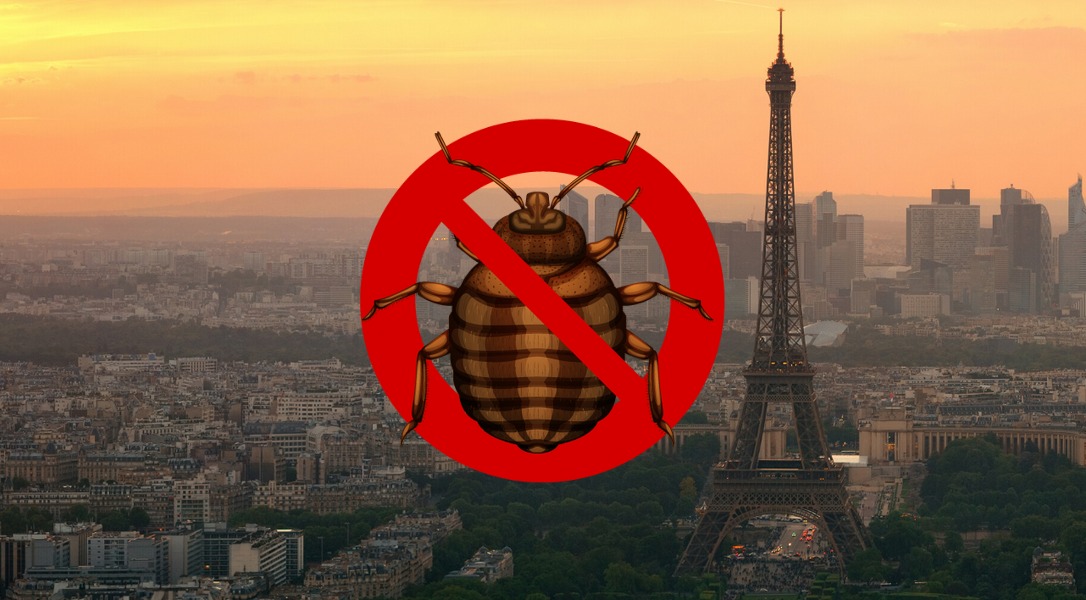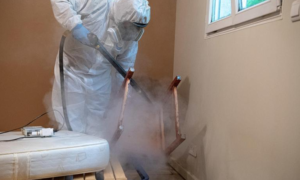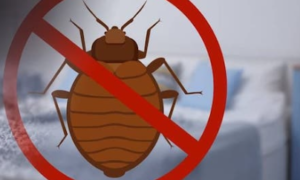Tunisia faces a significant threat to public health from an unexpected source: bedbugs, scientifically known as Cimex lectularius. These formidable parasites are increasingly rampant in French homes and hotels, and their origin, whether French or otherwise, makes no difference in the suffering they inflict.
Rental Platforms Under Scrutiny for Their Role in Bedbug Spread
As a global tourist destination, France attracts millions of tourists each year. With the rising trend of travellers choosing short-term rentals through platforms like Airbnb, the spread of bedbugs has become a major concern. These parasites feared for their bites and ability to infest residences, can unknowingly travel from one accommodation to another, facilitated by the increased mobility of travelers.
These nocturnal pests feed on human blood, causing excruciating itching and allergic reactions, disrupting their victims’ sleep. Their knack for hiding in the tiniest corners and spreading rapidly makes them a persistent nuisance that is challenging to eradicate.
Private rental platforms, including Airbnb and others, are at the centre of concerns due to their alleged involvement in the bedbug spread.
Three key aspects are singled out, raising concerns about the escalation of these parasites in homes across France:
-
The rise of accommodation rental platforms has indeed revolutionized the way travellers move, enabling them to book lodgings across France with a few clicks. However, this newfound mobility comes at a cost: the risk that travellers might unknowingly transport bed bugs in their luggage or clothing from previously infested places to new destinations.
- Hosts who rent out their accommodations are not always aware of the presence of bedbugs. These elusive pests are experts at hiding, making it challenging to detect them. Consequently, accommodations listed on these platforms can be infested without the host or the guest having the slightest inkling of the problem.
- Continuous flow of guests: The accommodations available for rent on these platforms see a significant number of guests over time. This constant rotation of guests creates an atmosphere conducive to the spread of bed bugs in the event of an infestation. Each new guest represents a possible vector of these parasites, being able to introduce them or take them with them when they leave.
Rental platforms, Airbnb included, bear both legal and moral responsibilities to implement measures aimed at educating hosts and guests about the issue of bedbugs. It is crucial for these platforms to mandate communication between both parties involved in the rental in the event of a bedbug problem. Further, systematic prevention measures, such as regular cleaning of rental accommodations and the implementation of stringent cleanliness control procedures, should be made mandatory to ensure a safe and hygienic environment for all guests.
France-Tunisia: A constant flow of travellers
The primary pathway for a possible cross-border infestation lies in the continuous movement of travellers between France and Tunisia. Regrettably, French tourists travelling to Tunisia can unknowingly introduce these undesirable bedbugs in their luggage or on their clothing, inadvertently paving the way for a widespread infestation.
Confronted with this escalating threat, Tunisian health authorities are grappling with a significant challenge. Aside from the physical discomfort they cause, the presence of bedbugs can even inflict severe emotional stress on those affected, seriously compromising their overall quality of life.
The cooperation between France and Tunisia in raising awareness among travellers about the risks associated with these parasites is of paramount importance. Travellers are strongly urged to meticulously inspect their luggage, launder their clothes at high temperatures after their stay, and promptly report any potential infestations they may encounter.
Ultimately, the battle against bedbugs demands unwavering vigilance and close coordination between the two shores of the Mediterranean to thwart the spread of these harmful parasites in Tunisia and safeguard public health. Heightened awareness of this threat must be a priority for all travellers and stakeholders involved.
What's happening in Tunisia?
Subscribe to our Youtube channel for updates.

















































